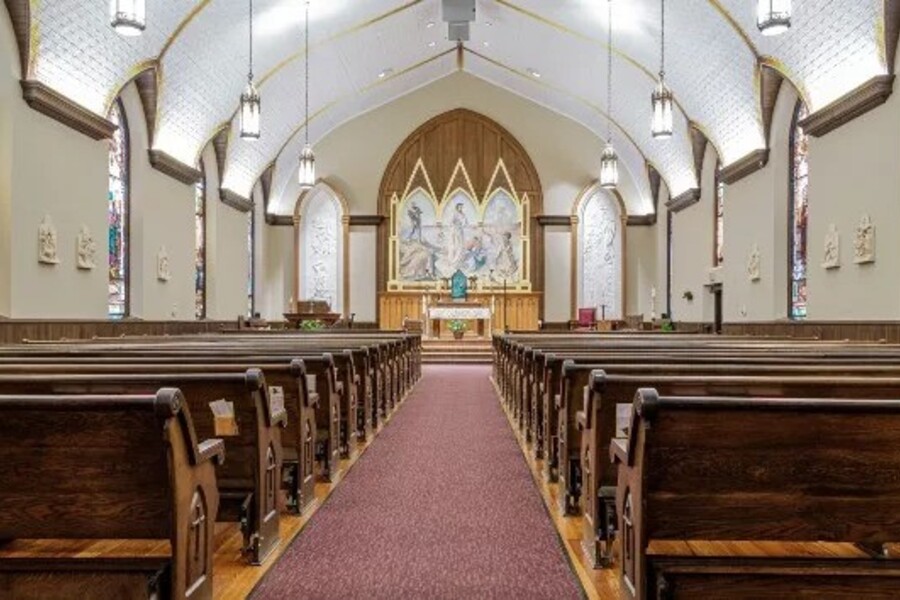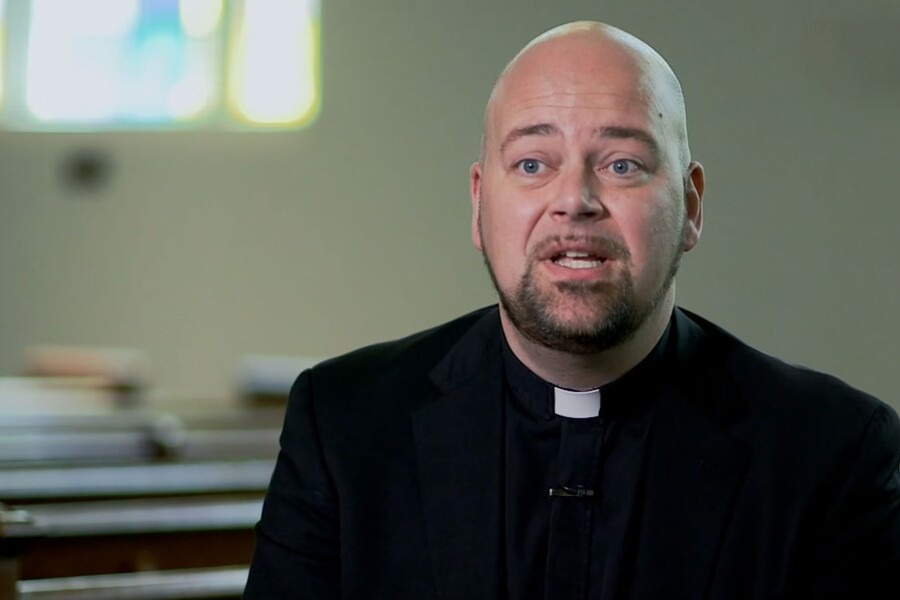Across the United States, churches are facing significant challenges as they struggle to keep their doors open. The declining attendance and rising operational costs are pushing many houses of worship to their limits. Some churches are opting to sell their properties or convert them into businesses or residences, while others are looking for creative ways to adapt and survive.
In Buffalo, New York, the All Saints Parish held its final Mass in July, with only a few parishioners attending. The priests encouraged the small group to take solace in the words of Ecclesiastes: “For everything, there is a season and a time for every matter under heaven.” For many churches like All Saints, that season is coming to an end.
Father Bryan Zielenieski, responsible for renewal and development in the Diocese of Buffalo, has seen this decline firsthand. “We essentially went to half of what we used to have,” Zielenieski explained. “We’ve lost about 100 parishes.” He predicts that another 70 churches will be forced to close as part of the Diocese’s “road to renewal.”
This is not an isolated issue. Across the nation, churches are grappling with the same challenge. Gallup reports that in the late 1940s, nearly 80% of Americans were members of religious institutions. Today, that number has dropped to just 45%, with only 32% attending weekly services. The decline in church attendance has contributed to the closing of thousands of churches, and before the COVID-19 pandemic, as many as 1,000 churches were closing annually.
Some former places of worship have been repurposed. For example, a Methodist church in Atlanta, once home to 60 members, was sold and transformed into luxury condos. Churches are being converted into everything from businesses to bars and nightclubs. However, not all churches are closing. Some are finding new ways to stay relevant.
Pastor Jasmine Smothers of First United Methodist Church in Atlanta is leading the charge to save her church. Smothers has a plan to use the church’s land to build more than 300 affordable housing units. The project will not only provide much-needed housing but will also generate revenue to support the church’s ministries. “It’s going to change the landscape of Atlanta,” Smothers said.
Similarly, in Calcium, New York, Pastor Milton LaSalle is facing financial difficulties at his small-town church. With only 35 regular members, many of whom are elderly, LaSalle’s church is struggling to stay open. Yet, despite the challenges, LaSalle remains hopeful. The church continues to provide vital services, such as clothing and school supply giveaways for the local community.

While many churches are doing their best to adapt, the decline in attendance is undeniable. Father Zielenieski points out that people tend to turn to religion during difficult times. “When times are good, people forget God,” he said. “When times are challenging, they go to God first.” The current situation highlights the urgency of addressing the future of religious institutions in the United States.
In Buffalo, the sale of All Saints Church is imminent. The priests involved are ensuring that the church’s final deal includes provisions that prevent the new owners from turning the property into something contrary to the church’s values. “We’ve worked into the deal language that prevents the new owners from turning it into a place that encourages people to sin,” Father Zielenieski said.
As the future of religious institutions becomes more uncertain, religious leaders are exploring new ways to adapt. Some are turning their attention to innovative partnerships, such as building affordable housing or developing new community-focused initiatives. However, the path forward remains unclear, and the church’s role in modern society is constantly being reevaluated.
The question remains: Can churches adapt to the changing social and financial landscape, or will they continue to face an uphill battle? Whether through creative reinventions or difficult closures, the need for faith, community, and spiritual guidance remains strong. Churches may face challenges in the years ahead, but their importance to those who seek solace will always endure, no matter what form they may take.


